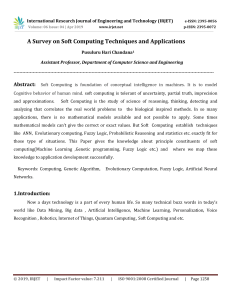Senén Barro Ameneiro Teilnehmer der Europäischen Konferenz der Bundeszentrale für politische Bildung
advertisement
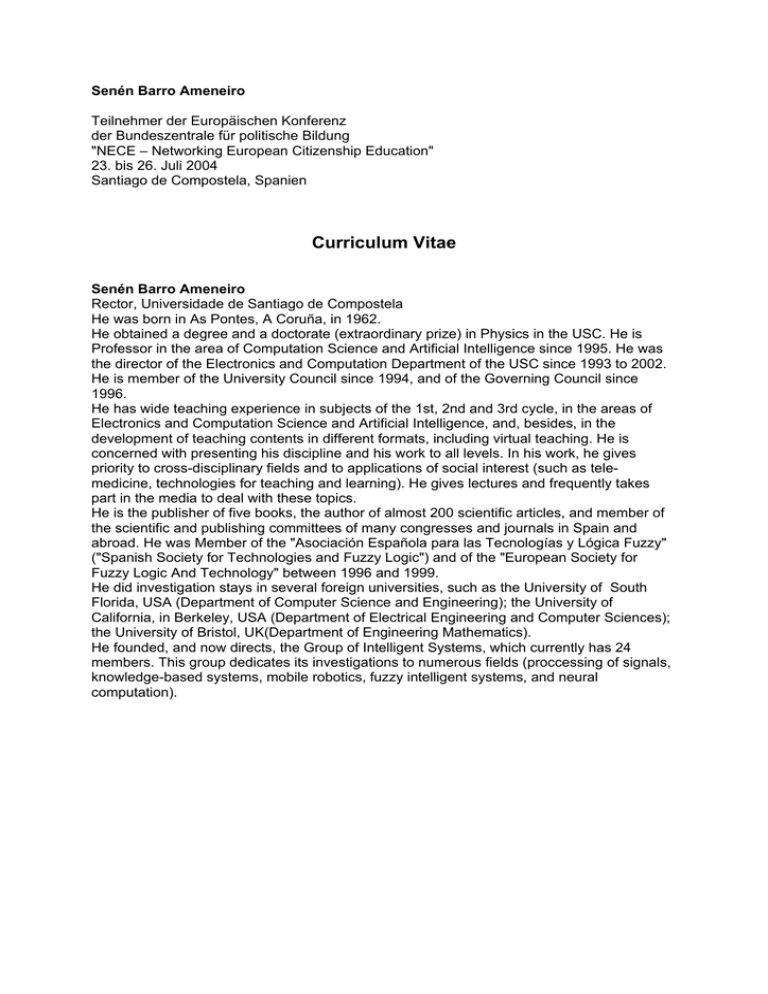
Senén Barro Ameneiro Teilnehmer der Europäischen Konferenz der Bundeszentrale für politische Bildung "NECE – Networking European Citizenship Education" 23. bis 26. Juli 2004 Santiago de Compostela, Spanien Curriculum Vitae Senén Barro Ameneiro Rector, Universidade de Santiago de Compostela He was born in As Pontes, A Coruña, in 1962. He obtained a degree and a doctorate (extraordinary prize) in Physics in the USC. He is Professor in the area of Computation Science and Artificial Intelligence since 1995. He was the director of the Electronics and Computation Department of the USC since 1993 to 2002. He is member of the University Council since 1994, and of the Governing Council since 1996. He has wide teaching experience in subjects of the 1st, 2nd and 3rd cycle, in the areas of Electronics and Computation Science and Artificial Intelligence, and, besides, in the development of teaching contents in different formats, including virtual teaching. He is concerned with presenting his discipline and his work to all levels. In his work, he gives priority to cross-disciplinary fields and to applications of social interest (such as telemedicine, technologies for teaching and learning). He gives lectures and frequently takes part in the media to deal with these topics. He is the publisher of five books, the author of almost 200 scientific articles, and member of the scientific and publishing committees of many congresses and journals in Spain and abroad. He was Member of the "Asociación Española para las Tecnologías y Lógica Fuzzy" ("Spanish Society for Technologies and Fuzzy Logic") and of the "European Society for Fuzzy Logic And Technology" between 1996 and 1999. He did investigation stays in several foreign universities, such as the University of South Florida, USA (Department of Computer Science and Engineering); the University of California, in Berkeley, USA (Department of Electrical Engineering and Computer Sciences); the University of Bristol, UK(Department of Engineering Mathematics). He founded, and now directs, the Group of Intelligent Systems, which currently has 24 members. This group dedicates its investigations to numerous fields (proccessing of signals, knowledge-based systems, mobile robotics, fuzzy intelligent systems, and neural computation).

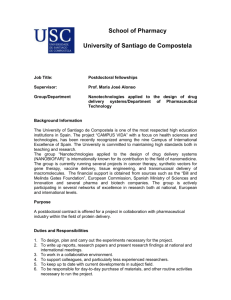
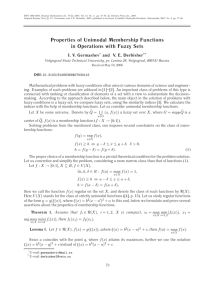
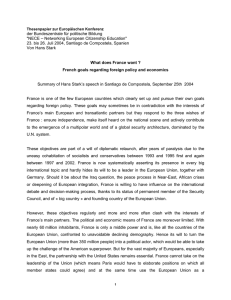
![LPTMM2015_Poster_03_GNSBMN_def [Modo de compatibilidad]](http://s2.studylib.net/store/data/018293001_1-9beebde50b05b157d686d798ee1ff093-300x300.png)
